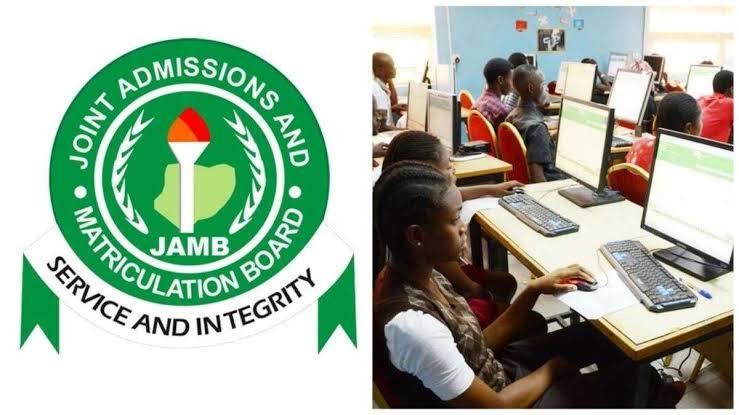Bayelsa State, located in the heart of Nigeria’s oil-rich Niger Delta region, is a land of immense natural wealth and strategic significance. Despite being one of the country's smallest states in terms of landmass and population, Bayelsa commands considerable attention due to its vast reserves of crude oil and natural gas. Understanding how the state allocates its financial resources is crucial to grasping its developmental direction and economic potential.
In this post, we explore everything about state allocation for Bayelsa State, with a special focus on the 2025 budget. We will examine the structure of revenue, the balance between capital and recurrent expenditures, major infrastructure and economic diversification plans, and the challenges and opportunities the state faces in achieving its ambitious developmental goals.
Bayelsa State’s 2025 Budget: A Strategic Vision
In 2025, Bayelsa State proposed a total budget of ₦450 billion, reflecting a significant 18.4% increase from the ₦380 billion approved in 2024. This budget, themed "Consolidation and Expansion," is structured to drive inclusive development, reduce dependence on oil revenues, and address critical infrastructural gaps across the state.
The increase in budget size reflects the state government’s commitment to expanding the economy through strategic investments in capital projects, health care, education, agriculture, and technology.
Capital vs. Recurrent Expenditure
A closer look at the 2025 budget reveals a bold approach to development financing:
-
Capital Expenditure: ₦270 billion (60%)
-
Recurrent Expenditure: ₦180 billion (40%)
This allocation indicates the state’s strong focus on development-oriented spending. Capital expenditure, which takes the lion’s share of the budget, will fund road infrastructure, housing, education projects, health sector improvements, and industrial hubs.
On the other hand, recurrent spending will cover salaries, overheads, pensions, gratuities, and administrative costs. The 40% allocation is within reasonable limits to ensure operational efficiency without compromising development goals.
Revenue Sources: Funding the Budget
1. Federal Allocation
As an oil-producing state, Bayelsa receives significant funding from the Federation Account Allocation Committee (FAAC). These include:
-
Statutory allocation
-
Value Added Tax (VAT)
-
13% Derivation Fund for oil-producing states
These federal allocations form the bulk of the state’s revenue. With crude oil prices rebounding, Bayelsa is expected to benefit substantially in 2025, though the government is cautious about overdependence on these volatile sources.
2. Internally Generated Revenue (IGR)
In a bid to strengthen its financial autonomy, Bayelsa has set an ambitious target to grow its IGR to ₦50 billion in 2025. This represents a significant increase from previous years and reflects the government’s intent to diversify income streams.
To achieve this, the state government is:
-
Automating tax collection systems
-
Expanding the tax base to include the informal sector
-
Strengthening compliance and enforcement
-
Promoting entrepreneurship and SME growth to expand taxable economic activities
3. Development Loans and Grants
To bridge funding gaps, Bayelsa plans to leverage development loans and bilateral grants, focusing primarily on infrastructure and industrial projects that can repay themselves over time. The government has assured that any borrowing will be targeted, responsible, and within debt sustainability limits.
Key Projects and Sectoral Allocation
Infrastructure Development
Infrastructure is a central pillar of the 2025 budget. Bayelsa is investing massively in road construction, bridge projects, rural access roads, and drainage systems, particularly in Yenagoa, Brass, and Southern Ijaw.
Notable infrastructure projects include:
-
Construction of the Glory Drive linking the state capital to the coast
-
Upgrading of the Ekeremor-Sagbama road
-
Expansion of Bayelsa International Airport infrastructure
-
Electrification projects in rural communities
Healthcare
Improving access to quality health services is a major budgetary focus. The state is investing in:
-
Upgrading general hospitals and primary health care centers
-
Health insurance schemes to widen coverage
-
Building maternal and child health facilities
-
Training and recruitment of medical personnel
Education
The state government is committed to transforming the education sector through:
-
Construction and renovation of schools
-
Investment in digital learning infrastructure
-
Recruitment and capacity building of teachers
-
Scholarships and bursaries for indigent students
These initiatives aim to increase literacy levels and prepare the youth for competitive roles in a modern economy.
Agriculture and Food Security
In a bold move to diversify the economy, Bayelsa is investing in agricultural productivity. Initiatives include:
-
Support for rice and cassava value chains
-
Distribution of farm inputs and implements to farmers
-
Training and extension services
-
Establishment of agro-processing zones
These programs aim to reduce food imports, create jobs, and ensure food security.
Flagship Project: Brass Fertilizer and Petrochemical Plant
Perhaps the most ambitious project in 2025 is the $3.5 billion Brass Fertilizer and Petrochemical Plant, to be sited in Bayelsa State. In October 2024, the federal government and major stakeholders including Shell, TotalEnergies, and Eni signed an agreement to supply gas to the project.
Key benefits of the Brass plant include:
-
Daily consumption of 270 million standard cubic feet of gas
-
$1.5 billion annual revenue from exports
-
Reduction of Nigeria’s fertilizer import dependency by 30%
-
Creation of thousands of direct and indirect jobs
-
Contribution to Nigeria’s goal of ending gas flaring by 2030
This project is expected to transform the economic landscape of Bayelsa, positioning the state as a major industrial hub in Nigeria.
Fiscal Responsibility and Transparency
Bayelsa State continues to implement public financial management reforms to ensure budget discipline and accountability. Key measures include:
-
Adoption of the Treasury Single Account (TSA)
-
Quarterly budget performance reports to the public
-
Digitization of government financial operations
-
Legislative oversight through the Bayelsa State House of Assembly
These measures are helping to foster public trust and promote the efficient use of public resources.
Challenges to Budget Implementation
While the state’s budget plan is ambitious, several challenges could affect its success:
1. Revenue Volatility
Heavy dependence on oil revenues makes the state vulnerable to global price shocks. A drop in oil prices could significantly affect federal allocations.
2. Project Implementation
Issues such as bureaucratic delays, corruption, and capacity limitations can derail project execution. The state must improve procurement processes and enhance oversight mechanisms.
3. Debt Servicing
Rising public debt, if not managed properly, can strain the budget. The government must ensure that loans are productive and not used for consumption.
Conclusion: A Blueprint for Economic Transformation
Bayelsa State’s 2025 budget and allocation strategy present a comprehensive blueprint for transformation. By prioritizing capital projects, diversifying revenue, investing in education, health, and agriculture, and committing to transparency, the state is on a path to inclusive and sustainable development.
The successful implementation of this budget depends on strong political will, citizen engagement, and institutional efficiency. If well-executed, Bayelsa could emerge as a model state for economic resilience and public sector innovation in Nigeria.
As citizens, civil society, and stakeholders continue to hold the government accountable, Bayelsa’s ambitious plans for growth and prosperity can become a lived reality.

















